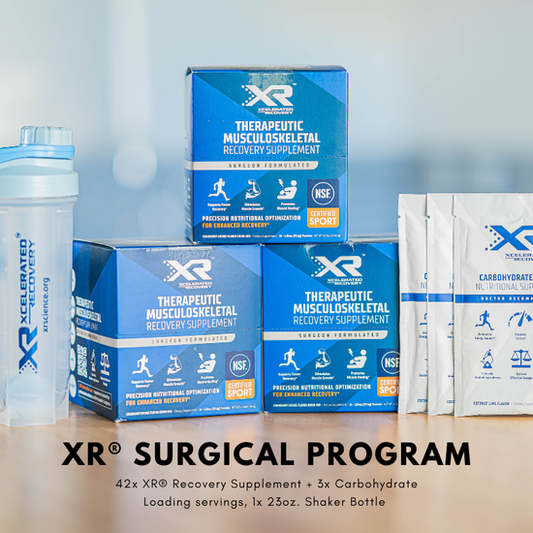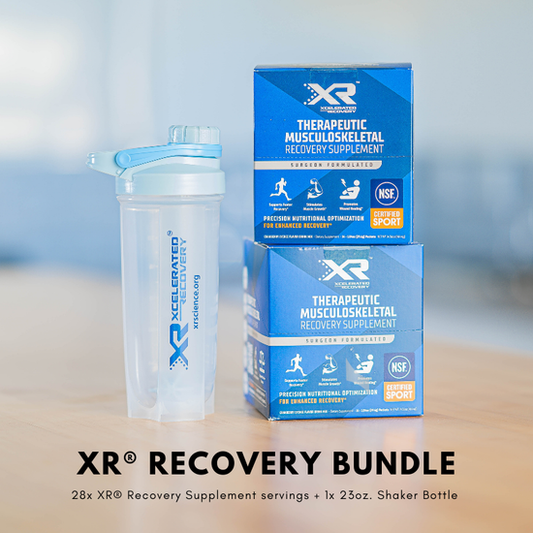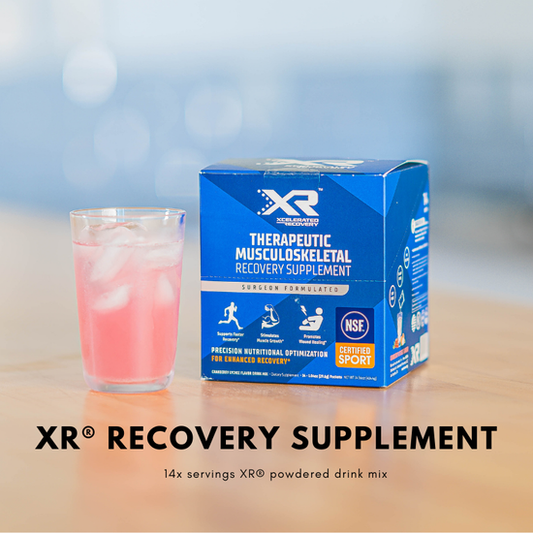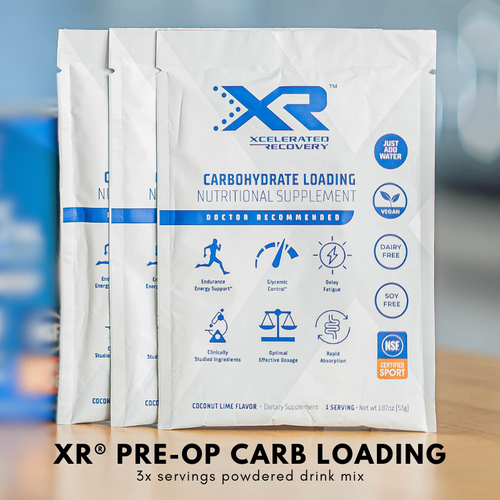
The Hidden Cost of Poor Nutrition in Surgical Outcomes — And How to Prevent It
Share
In the era of value-based care, hospitals and surgeons are under more pressure than ever to reduce complications, shorten length of stay, and improve patient outcomes. While advanced surgical techniques and ERAS (Enhanced Recovery After Surgery) protocols have made significant strides, one critical factor often remains overlooked: nutrition.
Malnutrition, even in patients who appear well-nourished, is a silent risk factor for delayed wound healing, increased infection rates, muscle atrophy, and readmissions. For hospitals, these complications carry measurable financial consequences, from increased inpatient days to higher penalties under bundled payment models.
For patients, the cost is often more personal, more time away from work, prolonged dependence on others, missed family events, and delays in returning to the activities they love.
The Financial and Clinical Impact of Malnutrition
Research shows that poor preoperative nutritional status is linked to:
- Increased rates of postoperative complications, including infections and delayed healing [2][3]
- Longer hospital stays and increased healthcare costs [4]
- Impaired muscle function and slower rehabilitation, extending recovery timelines [6]
- Higher readmission rates and reduced patient satisfaction scores [10]
Even a mild deficit in essential amino acids and micronutrients can tip the balance against optimal recovery, especially in orthopedic, spine, and cardiac surgery patients where physical function is directly tied to outcomes.
Why Preoperative Optimization Matters
The perioperative period represents a window of opportunity for intervention. By optimizing nutrition before surgery, we can enhance muscle protein synthesis, bolster immune defenses, and improve tissue quality, all of which contribute to better surgical outcomes.
A targeted pre-op nutrition plan should:
- Start at least 7 days before surgery to replenish amino acid pools and correct deficiencies.
- Deliver clinically effective doses of essential amino acids (EAAs), HMB, creatine, and collagen-supporting nutrients.
- Be easy to administer and patient-compliant to ensure adherence in the days leading up to surgery.
XR®: A Practical Solution for Pre-Op Nutritional Support
XR® Therapeutic Musculoskeletal Recovery Supplement was designed to address the specific metabolic demands of surgical recovery. Unlike generic nutrition drinks, XR® is:
- NSF Certified for Sport® — ensuring safety, purity, and trust for hospital use
- Clinically dosed with leucine-rich EAAs, myHMB®, creatine, arginine, citrulline, cystine + theanine, and critical vitamins and minerals
- Surgeon-formulated for the unique needs of orthopedic and musculoskeletal repair
By starting XR® 1 week before surgery and continuing for at least 2 weeks post-op, patients receive the right nutrients during the most critical phases of healing. This supports:
- Reduced muscle loss during immobilization [2][3]
- Faster return to function and rehab readiness [4]
- Improved tissue repair and wound healing quality [6]
- Lower complication risk and potential reductions in length of stay [10]
For Patients: Why the Investment Is Worth It
We understand that adding another out-of-pocket cost before surgery can feel overwhelming. But the right nutritional support is not just another supplement — it’s part of your surgical recovery plan.
When you take XR® as directed, you’re not just buying a product, you’re:
- Reducing the risk of infections, delayed healing, and other costly complications that can lead to more doctor visits, medications, and even readmission to the hospital.
- Saving time by potentially shortening your recovery — meaning fewer missed days of work and less time away from your family and activities you love.
- Maximizing the benefit of every physical therapy session so you regain function faster.
- Investing in quality of life — recovering strong the first time so you can get back to living without setbacks.
When you consider the cost of even one extra day in the hospital or an unplanned ER visit, the value of starting with the right nutrition becomes clear.
Why Hospitals Should Act Now
For hospitals, implementing a standardized pre-op nutritional optimization protocol with XR® offers:
- Improved patient outcomes
- Potential reductions in costly complications and readmissions
- Alignment with ERAS protocols and value-based care goals
- A scalable, evidence-based intervention that’s easy to integrate into pre-surgical workflows
The Bottom Line
The hidden cost of poor nutrition in surgical patients isn’t just physiological — it’s financial, emotional, and functional. Addressing it through proactive, targeted pre-op nutritional support can improve outcomes, reduce costs, and get patients back to their lives faster. XR® provides a ready-to-implement solution backed by science and trusted by leading surgeons.
Learn more about integrating XR® into your pre-op protocols
References
[2] Ueyama H, Arimitsu T, Hashimoto T, et al. Perioperative Essential Amino Acid Supplementation Mitigates Muscle Atrophy After Total Knee Arthroplasty: A Randomized, Double-Blind, Placebo-Controlled Trial. Journal of Bone and Joint Surgery - American Volume. 2023;105(5):394-403. doi:10.2106/JBJS.22.00541
[3] Hendrickson NR, DePhillipo NN, Aman ZS, et al. Conditionally Essential Amino Acid Supplementation Attenuates Muscle Atrophy After Anterior Cruciate Ligament Reconstruction: A Randomized Controlled Trial. Journal of Bone and Joint Surgery - American Volume. 2022;104(9):810-817. doi:10.2106/JBJS.21.00697
[4] Ueyama H, Arimitsu T, Fujita S, et al. Essential Amino Acid Supplementation Reduces Muscle Volume Loss After Total Knee Arthroplasty: A Randomized Controlled Trial. Bone & Joint Journal. 2020;102-B(6):719-727. doi:10.1302/0301-620X.102B6.BJJ-2019-1393.R1
[6] Okamoto N, et al. Effects of Essential Amino Acid Supplementation on Muscle Mass, Strength, and Physical Function in Older Adults: A Systematic Review and Meta-Analysis. Nutrients. 2022;14(13):2676. doi:10.3390/nu14132676








